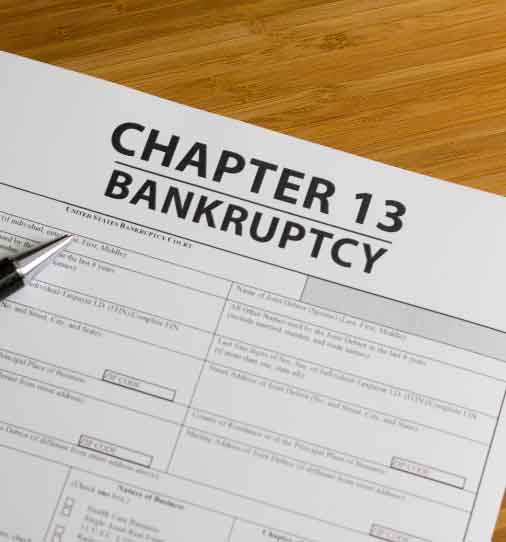![chapter-13-laws-and-requirements.jpg]()
What Exactly is Chapter 13 Bankruptcy?
While Chapter 7 allows you to discharge your debts, Chapter 13 is a payment plan. The court reorganizes your balances and, instead of paying each of your creditors directly, you make an affordable monthly payment to a trustee. This process allows you to repay what you owe over 3 to 5 years.
Chapter 13 is the best way to prevent lenders from foreclosing on your home and repossessing your vehicle or personal property. Because you are not discharging your debt, you get to keep all the possessions you've worked so hard to buy — including the roof over your head.
Filing for bankruptcy immediately stops all collection activity through what Georgia law calls the "automatic stay." This court order will protect against creditor harassment while your attorney works out a repayment plan that thoroughly addresses your unique circumstances.
How To File Chapter 13 in Georgia?
To initiate proceedings, your attorneys will submit the required forms to the nearest bankruptcy court. You can use this Federal Court Finder to locate the court nearest you. In Georgia, you will need to file in one of these three districts:
- Georgia Middle District
- Georgia Northern District
- Georgia Southern District
Once you open your case, the judge will issue an automatic stay that forbids your lenders from contacting you. This automatic stay orders your creditors to stop:
- Foreclosure proceedings
- Repossessions
- Debt collection
- Lawsuits
- Wage garnishments
- CONTACTING YOU AT ALL!
The Requirements
To qualify for Chapter 7, you have to pass the "means test" to prove that you have insufficient means to pay back what you owe. The means test is based on your household income and disposable income. If you are over the income limit, you aren't qualified to have your debts discharged.
You can file for Chapter 13 no matter how much you make. A trustee will look at your household and disposable income information to decide how much you can afford each month, but you can never be disqualified because of it.
Bankruptcy has allowed millions of Americans to take back control of their lives. Call or text DebtStoppers today at 678-673-214 to learn more about how our debt relief plans can instantly improve your financial situation. Our experienced Savannah attorneys are ready to help you!
Schedule a free one-on-one consultation with a DebtStoppers attorney to discover what bankruptcy can do for you and your family. Just call or text us at 678-673-2142 today!

